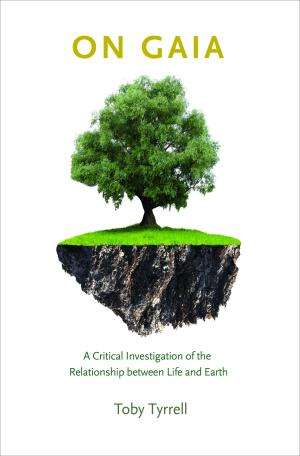New book finds Gaia Hypothesis implausible

A new book presents the first detailed and comprehensive analysis of the famous Gaia Hypothesis, and finds it to be inconsistent with modern evidence.
In the 1970's James Lovelock's Gaia Hypothesis proposed that life has played a critical role in shaping the planetary environment and climate for around three billion years. Life has not been merely a passive passenger on a fortuitously habitable Earth, Lovelock claimed, but rather has shaped the environment and helped to keep it stable and comfortable for life.
In the 30 years or so since it was first proposed, the Gaia Hypothesis has intrigued a whole generation of those interested in natural history and planet Earth. Today it is widely but by no means universally credited by scientists. It remains controversial.
In his book, 'On Gaia: A Critical Investigation of the Relationship between Life and Earth', Toby Tyrrell, Professor of Earth system science at the University of Southampton, concludes that the Gaia Hypothesis is not consistent with modern scientific evidence and understanding and should therefore be rejected.
Professor Tyrrell's book submits the Gaia Hypothesis to detailed scrutiny, subjecting each of three main arguments put forward in support of Gaia to close analysis, and comparing them to evidence collected in the more than 30 years since the Gaia Hypothesis was first proposed. It is the first book containing a hard-nosed and thorough examination of the Gaia Hypothesis.
It considers some of the great questions about the nature of our planet, its history, and how it came to give rise to us. Many fascinating topics are covered, often from little-known corners of the natural world. Examples include: hummingbirds in the High Andes and the similarity of their beaks to the flowers they extract nectar from; the wonderfully-named Walsby's square archaeon in the Dead Sea; the ever-lasting durability of the waste that coral reefs generate; changes in the nature of the saltiness of seawater over geological time; and differences in the way Australian snakes bear young depending on climate.
Professor Tyrrell, who is based at the National Oceanography Centre, Southampton, says: "My aim was to determine whether the Gaia Hypothesis is a credible explanation of how life and environment interact on Earth - I found it is not.
"Firstly, because there are no facts or phenomena that can be explained only by Gaia (no 'smoking gun'). Secondly, because there is no proven mechanism for Gaia (no accepted reason for why it should emerge out of natural selection). And thirdly, because the key lines of argument that Lovelock and others advanced in support of Gaia either give equally strong support to alternative hypotheses or else are mistaken."
In the book, Professor Tyrrell finds that a competing hypothesis, co-evolution of life and environment, is compatible with our modern understanding in a way that Gaia is not.
Professor Tyrrell adds: "Stephen Schneider and Randi Londer put forward the idea of a coevolution between life and its environment: biological processes such as oxygen production by photosynthesis shape the environment, and, clearly, the environment also strongly influences life through evolution of organisms to fit their environments. Coevolution recognises that both affect the other. Unlike Gaia, however, coevolution does not claim any emergent property out of the two-way interaction between life and environment. It is neutral with regards to predictions about the resulting effect on the environment. It does not suggest that the interaction tends to improve living conditions on Earth."
The question of how Earth's environment works is especially important at the present time, as we seek to understand how large anthropogenic pressures affect it.
More information: The book is published by Princeton University Press and is available now: press.princeton.edu/titles/9959.html
Professor Tyrrell will be giving a talk about his evaluation of the Gaia Hypothesis and signing copies of his book on Thursday 4 July at the National Oceanography Centre, Southampton.
The talk starts at 6.30pm and is open to the public.
Provided by University of Southampton

















